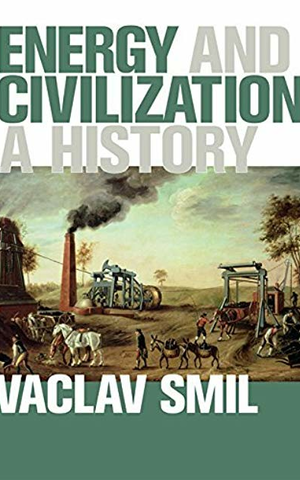
Energy and Civilization: A History
- Book
- May 12, 2017
- #Energy #Civilization
Energy is the only universal currency; it is necessary for getting anything done. The conversion of energy on Earth ranges from terra-forming forces of plate tectonics to cumulative...
Show More
Number of Pages: 568
ISBN: 0262035774
ISBN-13: 9780262035774
Mentions
See All
B0z!TCu @bozopopovic
·
Jul 12, 2022
- Answered to Best books to understand energy, energy markets, power generation, transmission?
- From Twitter
I think this book should be any university mandatory course. It is "The Bitcoin Standard" for energy. You will not get a better intro and then go the path of your choice to dog deeper.
Rafa ₿ @txapotxapa
·
Jul 12, 2022
- Answered to Best books to understand energy, energy markets, power generation, transmission?
- From Twitter
🎯🎯
Snow ❄️ @mattcsnow
·
Jul 12, 2022
- Answered to Best books to understand energy, energy markets, power generation, transmission?
- From Twitter
Fossil Future (if you haven’t already), Energy & Civilization
Bill Gates @BillGates
·
Dec 4, 2017
- Curated in 5 amazing books I read this year (2017)
Smil is one of my favorite authors, and this is his masterpiece. He lays out how our need for energy has shaped human history—from the era of donkey-powered mills to today’s quest for renewable energy. It’s not the easiest book to read, but at the end you’ll feel smarter and better informed about how energy innovation alters the course of civilizations.